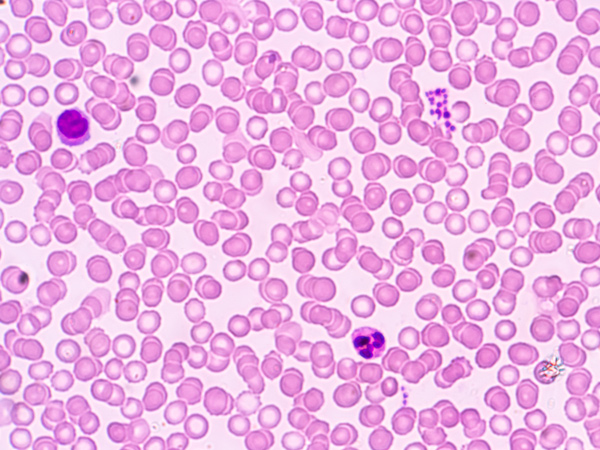Targeting Multiple Myeloma
The FDA has approved the first targeted therapeutic against B-cell maturation antigen (BCMA) to treat certain patients with multiple myeloma.

The U.S. Food and Drug Administration (FDA) has approved belantamab mafodotin-blmf (Blenrep) to treat patients with relapsed or refractory multiple myeloma who have received at least four prior therapies. Belantamab mafodotin-blmf takes aim at a protein found on the surface of myeloma cells that plays an important role in cell survival. This is the first targeted therapy drug in oncology to target that specific protein.
The new agent is indicated for patients who received at least four prior therapies, including an anti-CD38 monoclonal antibody, a proteasome inhibitor, and an immunomodulatory agent.
The efficacy of the new drug was based on overall response rate and response duration in a phase II open-label, multicenter trial involving 221 patients who received either 2.5 mg/kg or a higher dose (3.4 mg/kg) of the drug. The overall response rate was 31 percent, with 73 percent of the responders in the lower-dose group showing a response that lasted at least six months or longer.
Multiple myeloma is a relatively rare form of blood cancer that develops when too many abnormal plasma cells build up in the bone marrow, contributing to the formation of tumors in multiple bones throughout the body. The National Cancer Institute (NCI) estimates that in 2020, some 32,000 people in the U.S. will be diagnosed with myeloma and more than 12,000 will die from the disease.
Adverse reactions to belantamab mafodotin-blmf occurred in 20 percent or more of the patients in the clinical trial. Due to the risks of ocular toxicity along with other severe side effects, the therapeutic was approved with a Boxed Warning stating the side effects and is only available through a restricted program of the FDA.
The FDA granted belantamab mafodotin-blmf accelerated approval on August 5, 2020. Accelerated approval means continued approval may be contingent upon a confirmatory trial.
